Day 3 of my newsroom internship: The Newsroom effect
4 min readIt’s the third day of my newsroom internship and the Aaj website has suddenly crashed. “Is the website working for you?” We ask each other one by one. No luck. The desktop shows a “500 server error” message. We immediately begin checking other news websites. Our first few tries are unsuccessful; many of the prominent websites aren’t working. What’s going on? My immediate thought is that something incredibly bad has happened—if journalism is being attacked—but perhaps I’ve read too many dystopian novels. We check more websites and to my relief, some of them are working. A few moments later, we receive a message about a technical issue (we later learn is an international Cloudflare outage).
As I reflect on those two minutes of horror, I realize that while this is the first time in my internship so far that something like this has happened, the feeling isn’t new. The horror that comes with living at the edge of doom has become a constant Pakistani anxiety. As political leaders play the blame game on television, the people on the street have other preoccupations, like managing transport amid the fuel price hike or dealing with the losses from the austerity market timings.
There’s a quote by Richard Price, with reference to writing about war that sums up how national—or global—crises pan out. “The bigger the issue, the smaller you write… you don’t write about the horrors of war. No. You write about a kid’s burnt socks lying on the road. You pick the smallest manageable part of the big thing, and you work off the resonance.”
The depth of the effect of Pakistan’s financial crisis cannot be grasped through clips of press conferences or speeches made by political leaders. Economic updates are a big part of the picture, but the picture is incomplete if we don’t pay attention to how the crisis is experienced by people who won’t make the headlines.
The crisis is in our homes, in the streets, and in the newsroom that I am sitting in right now.
 Day 1 of my newsroom internship: Hina Rabbani Khar and the Table
Day 1 of my newsroom internship: Hina Rabbani Khar and the Table
“This won’t happen to us”
The feeling of horror triggered by the website crash is akin to what I felt reading the Reuters wire copy about Sri Lanka’s crisis.
“The shutdown order came last week as the UN launched its emergency response to feed thousands of pregnant women who were facing food shortages,” it said. “Four out of five people in Sri Lanka have started skipping meals as they cannot afford to eat.”
What was terrifying was that I could imagine the same thing happening to Pakistan. I could conjure the image with minimal effort; it almost seemed like an inevitable outcome to events unspooling in the past few days.
By virtue of being in a newsroom, I realised I was closer to the crisis. For the first time, I was getting news of the interbank US dollar closing rate before my father. As I trawled through the news on Axon, the software in which the television reporters file their copy, I came upon stories on inflation, rising milk prices, and runaway fruit prices, while the government offered a mere Rs2,000 per person relief fund to lower-income households.
It seems that Pakistan is slowly moving towards an economic disaster like Sri Lanka’s and because it is manifesting here, we no longer have the luxury of thinking “this won’t happen to us”.
Telling ourselves that bad things won’t happen to us is called the Optimistic Bias. This is a thinking error we are all guilty of, yet with the odds piling up, we continue to delude ourselves at risk. “This won’t happen to us” has turned into “This could be happening to us.”
 Day 2 of my newsroom internship: the mysterious cup of chai
Day 2 of my newsroom internship: the mysterious cup of chai
Beyond thinking errors
The loss of the privilege of thinking a certain way is just one consequence of Pakistan’s financial crisis. Our mental health suffers not just because of the feeling of impending doom, but also because we are unable to move the conversation beyond the crisis. At the dining table, we keep coming back to petrol prices. In the newsroom, we scamper to record each update.
Whether the end-of-the-world is nigh or not for Pakistanis, the feeling that comes with it has already arrived. I hope that our national leaders are doing something because otherwise we’ll really be stuck inside a dystopian novel: They are fun to read, not live through.
Rida Altaf is a summer intern at Aaj News. She is a social sciences student at IBA
For the latest news, follow us on Twitter @Aaj_Urdu. We are also on Facebook, Instagram and YouTube.
















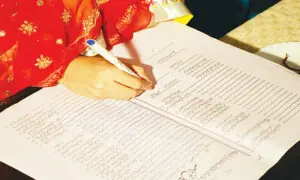

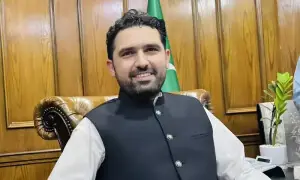

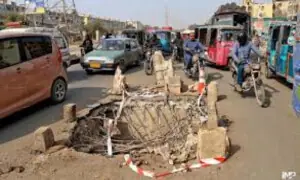
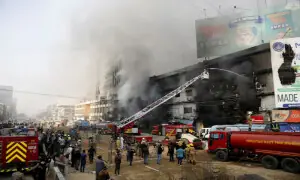

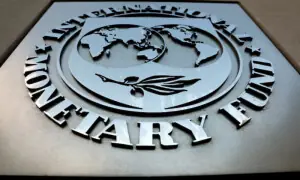

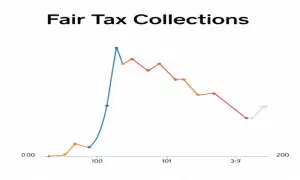
Comments are closed on this story.